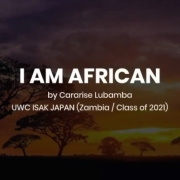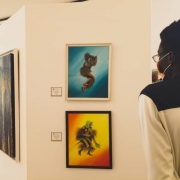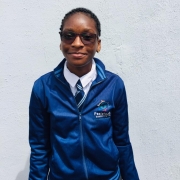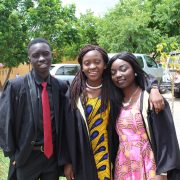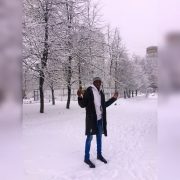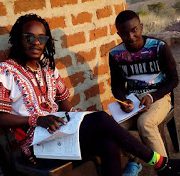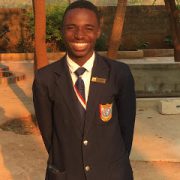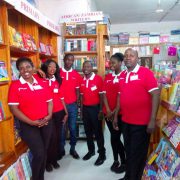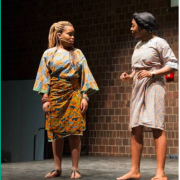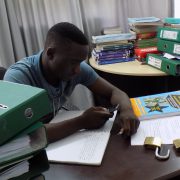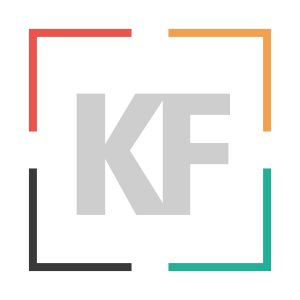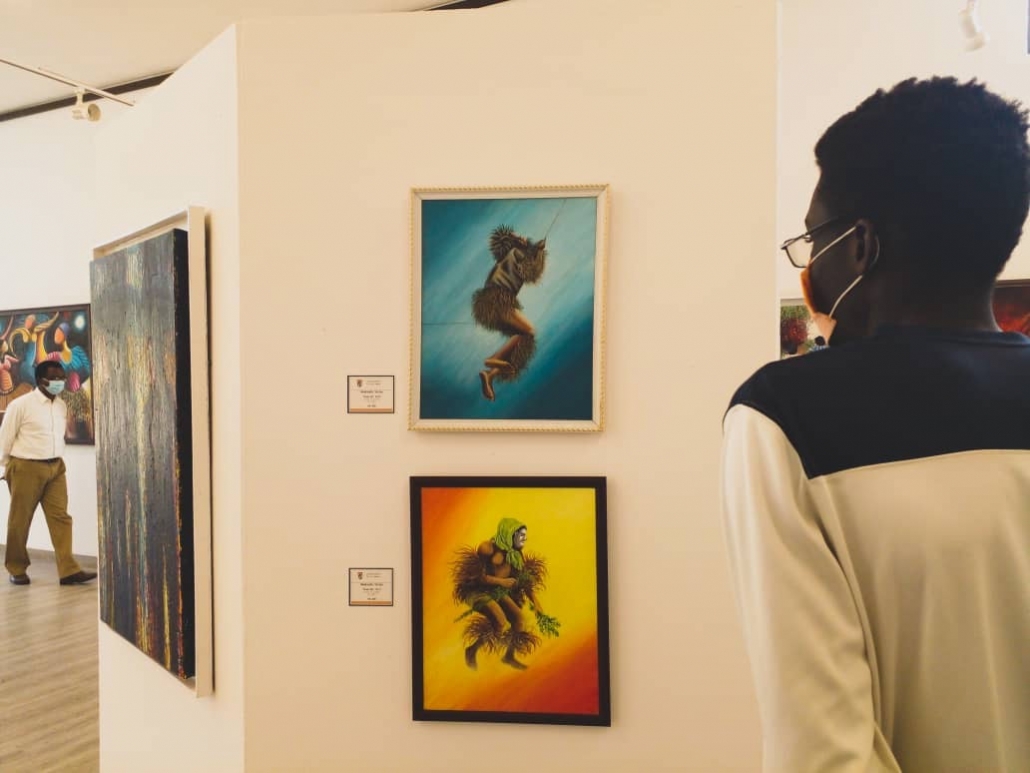
The Lechwe Trust Art Gallery in Lusaka is running an art exhibition which features great pieces of art from two Zambian Artists; Victor Makashi and Patrick Mumba. Most of their artworks bring to life the cultures of two prominent tribes here in Zambia; the Luvale people of North Western Province and the Lozi people of Western Province of Zambia. On the 25th of June some of the Kucetekela Foundation gap year students (including myself) together with the Executive Director took some time to visit the Art Gallery. It was an amazing experience as we got to gain more knowledge about our culture and also get to see the amazing artwork of our own artists. Among the most captivating paintings in the gallery were that of the Makishi Dancers of the Luvale People. In this article I am going to share some important information about the Luvale people and their culture.Luvale ( same as; Chiluvale, Lubale) is a buntu language that is widely spoken by a particular group of people from Angola and Zambia. The Luvale people are best known for their Makishi (“likishi is the singular”) dancers who wear masks and knitted costumes which are made from traditional materials. It is generally stated that most of the Makishi are men, however, we can not really say that’s the truth because their identity is strictly hidden from the public. Legend has it that they wear their costumes from the graveyard where no one can see them. The only time we get to see them in action is when they are performing at special events such as the Likumbi Lya Mize, Mukanda and Wali. The Likumbi Lya Mize ( translates to “ceremony of the mize”) is a ceremony where the Makishi dancers are deployed together with Wali at the Chief’s Palace where they perform various dances. Apart from the dances, speeches are also given by the chief and other government officials. The whole event takes place for about one week and it is witnessed by the general public, who watch it either on the National Broadcasting Television Channel or from the actual site at the Chiefs Palace.The other famous Luvale Ceremony is the “Mukanda ceremony”. The Mukanda is a coming of age ceremony that includes male circumcision, the ceremony takes place in the bushes and lasts for about 6 month. The participants are Luvale males aged between 8 and 12, and they are called “Tundaji”. The teachers who take them through this process are called Makishi. The Makishi guides the tundaji through their transition process from being boys to becoming men. It’s a tough process but that’s what makes a Luvale man to be a brave man.Finally, the Wail ceremony. It is a coming of age ceremony for a Luvale girl who reaches puberty (age of 13). The girl (Mwali) is moved from her parents home and taken to a new built house that is near a fig tree, the tree symbolises “Fertility”. Mwali is taught on how to be hygienic, how to do domestic chores and is given protective medicine by her teacher; “ Chilombola”. After this period, which takes place for about a week to one month, has finished, Mwali has to perform various dances to show the skills that she has gained from the ceremony. Mwali is then covered in a chitenge and is taken back to her home. In the past, her return home would be welcomed by an arranged marriage. However, due to changes in culture and the laws governing the country, early marriages are illegal in Zambia. Therefore, nowadays this ceremony is performed right before the woman gets married.In conclusion, I was thrilled to see how these two artists ( Victor and Patrick) were able to capture the most important part ( Makishi) of the Luvale culture through their amazing paintings. As a Kucetekela Foundation student, it’s important for me to understand my culture and that of other people as it will help me to become a great leader.
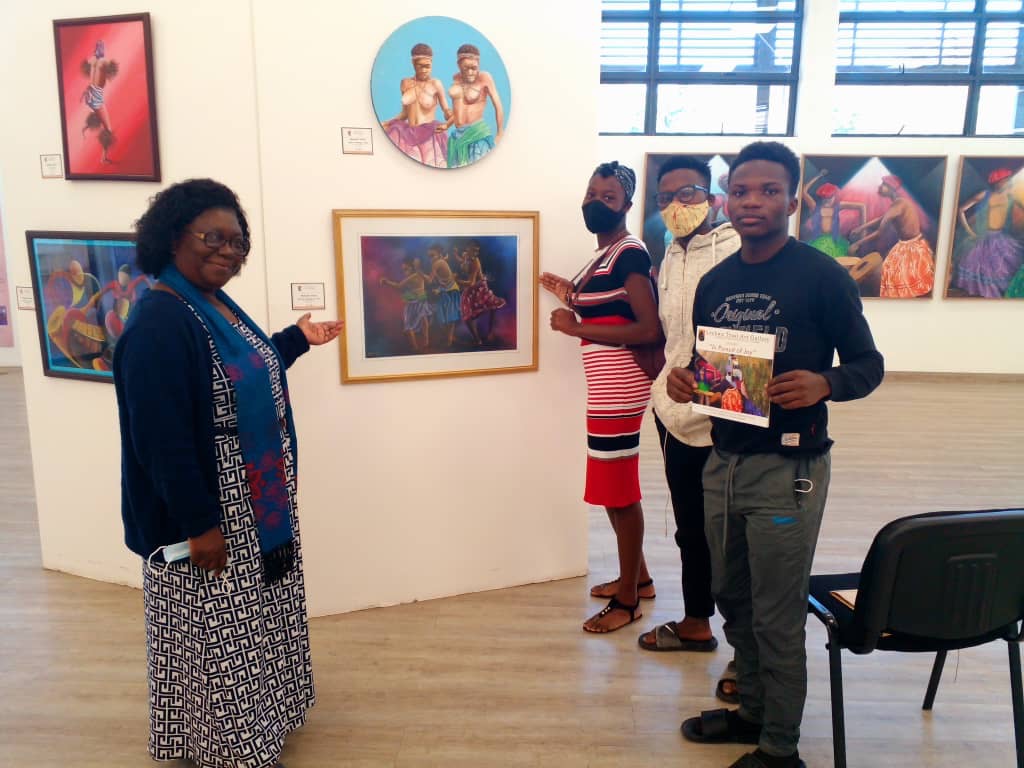
| ReplyForward |
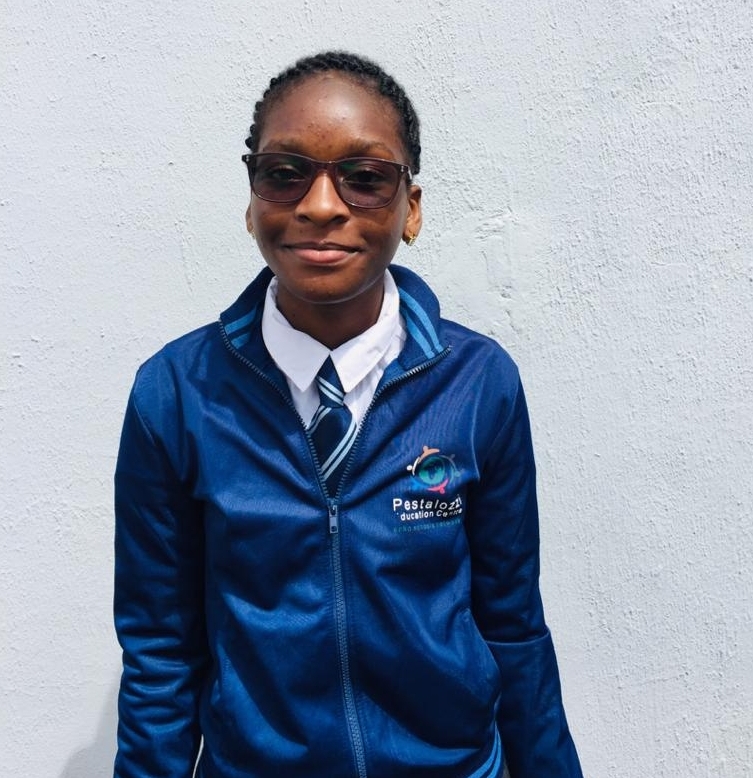
Dear Sponsor,
I consider writing to you as one of the best things ever. It is always my pleasure to inform you on everything I have been doing. I’m also encouraged to strive for excellence in whatever I do because it is the least I can do to show appreciation for your support towards my education.
This letter intends to explain the activities I have developed over the previous term, my Covid-19 experience and my expectations in this new year that we have begun. I am still carrying on with my passion of being a surgeon especially after seeing that so many diseases are arising globally.
At school, there are a lot of clubs that I am engaged in. These Include JETS Club, Math Magician, Children World Movement, Entertainment World, Taekwondo Club, Drama Club, Girl up, and of course Poetry Club. My favorite among these clubs is the JETS Club. This is because it teaches me so much about Science. I am so active in this club that I was made the president.
My special highlights of 2020 were when I recited a poem about my country on independence day. playing badminton, and when I attended lessons for three good weeks. I enjoyed all these activities and they felt so unique.
The breakout of coronavirus affected so many things, one of them being my family’s income. To make matters worse, schools had to close indefinitely but in order to keep myself useful, during the Covid- 19 school closure, I volunteered at a nearby community clinic. Here I worked in the counseling departments and did general cleaning.
Fortunately, during the lockdown, I received a smartphone and monthly 12GB bundles from KF for online classes that my school introduced. I prepared for my end of term well by studying hard and doing research on various topics I had challenges with.
In 2021, I am looking forward to working extra hard and improving in all the ventures that I undertook last year. I want to bring out the best version of myself.
Sadly, school became a bit tough when I returned after the covid-19 holiday. This was as a result of teachers trying to catch up for the time we had lost. We had a lot of work and kept moving very quickly.
I am ending this letter by thanking you once again my lovely sponsor for everything you have done for me in my life, I really appreciate it. I wonder how life would have been without you. May God bless you together with your family because you deserve it. Thank you, I will forever appreciate you.
Yours faithfully,
Blessings Kasabo
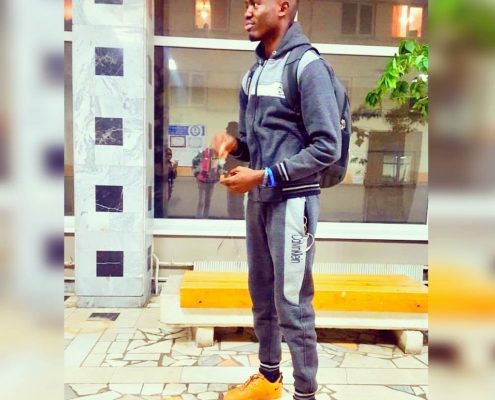
Happy New Year. I could not think of a better way to start this article than showing gratitude to KF, for the emotional support, financial and academic advice through each step of the way.
Russia is a good fit for me. Upon getting to Russia, I felt alone for the first time. At every juncture of success since I joined KF I was never alone. Looking back to achievements like Yale Young African Scholars and Yale Young Global Scholars I always had a close friend or two.
However, the interpersonal skills that we are taught in KF go a long way. In a very short period of time I started getting used to being with fellow students here.
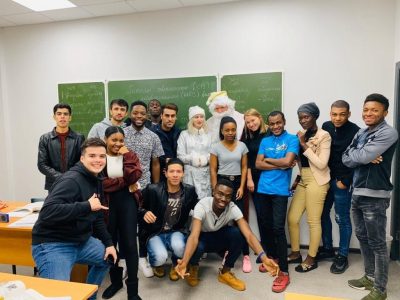
I experienced tremendous cultural shock upon arrival. Firstly, Russia is very cold. Even arriving at the airport in Moscow made my warm clothing look like summer clothes. Russian people walk extremely fast and respect their time. University here and at home is very different. Lecturers want to see you in class, they want to see you speak and engage in class activities to the extent of you have poor class attendance they deduct marks from your exam results. Russian people have a very good reading culture. During journeys in buses and trains, people are always reading. However, they consider material gifts like shoes or clothes as a very rude gesture. To some extent, the Russian language culture is similar to that of Zambia. In the same way one would put “Ba” before addressing an elderly person, the Russian language conjugates verbs and pronouns the same way. Russia has a very international population of students and even workers, half the people I have met in banks and eateries are not Russian.
I am very engaged in activities outside of academics in school. Firstly, I continued with basketball except here people think I am exceptionally good. I also play volleyball and since Russians like table tennis, I play a lot of it as well. My very good English speaking is being recognized too, I am currently teaching my Russian Tutor English. I hope she makes it official. There is a very good Zambian community in Moscow, and I am part of the executive of the Zambian community at my school which has 30 students from Zambia. On a larger scale during the elections for city president among Zambians, I was part of the organizers of the election.
I am currently learning how to trade forex with a friend and I have intentions of putting a price tag on my music.
Generally everything is okay, my academics are top notch I’m doing my the best to push my self to the limit.
Happy New Year once more.
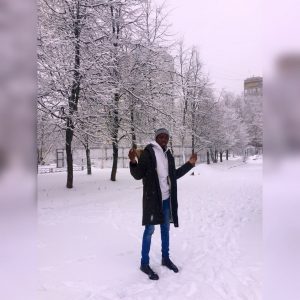
During the holidays, April and August, in 2018 we had the opportunity to attend the Our Moon tuitions in Chibombo. This program was facilitated and coordinated by Justin Mushitu, Helen and Our Moon students.
The Experience:
Our experience with the Our Moon scholars (Hillcrest and David Kaunda Technical Secondary School [DK]) was both intimidating and enlightening. We felt like we were working with professionals, and that was nerve-wracking for us. We would always think about how very little we had done in our academic lives when contrasted with the Hillcrest and DK pupils’ endeavours. We learned about the A-Levels and how to get ready for them. This made us more determined to do even greater things and not in the academic compartment alone. These interactions opened up our minds to diverse ways of approaching studies hence improving our study techniques.
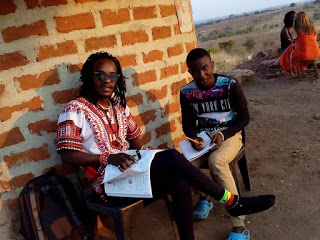
KF Alum Justin assists Philip with his studies.
Interacting with the Our Moon scholars was very impactful, and it felt like it was needed for the growth that we experienced. We learned a lot about academics and the experiences that they had overcome to reach that stage. Working in such groups helps you build your confidence and the attention you receive from your peers is very important for you to open up and accept errors.
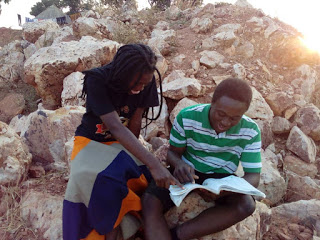
Faith works with an Our Moon student.
We worked with past papers primarily and although the approach was not entirely new, it was the most past papers we had ever worked on. This proved to be helpful to us, because we got more acquainted with how to answer examination questions.
One of the many things we enjoyed during the program was the peer tutoring approach. We were free to express our misunderstandings, our disagreements and our views in a different way because we were working with people in the same age-range as ours. We were advised to be ourselves, and everyone was expected to do their best and be as helpful as possible. It was a nice team-work experience that we would want to experience every day. This peer tutoring in terms of working collaboratively was very helpful.
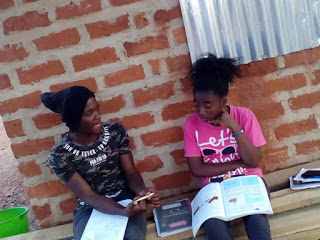
Mercy works with an Our Moon student.
To improve the efficiency of our peer tutoring, we started an activity called “teach what you don’t understand or don’t know.” This was to motivate each person in the group to study the topic so that they could teach us. It also helps other students easily notice where their errors were and correct them.

Cecilia and Faith during a “Teach What You Don’t Know” exercise.
Impact:
The most changing aspect about the tuitions for us was Khan Academy. It was a challenging but fun way of learning that we enjoyed immensely. The quizzes, tutorials and the rewards afterwards were very helpful to our confidence in preparing for the sciences. Using Khan Academy was amazing, because it simplified things, and we learned things in a short period of time, meaning that we learned a lot of things in the process. We wish we had started earlier.
Chalo had not offered tuitions for a long time. After experiencing Our Moon, we, the KF students, decided to share what we had learned from Our Moon. Chalo was ready to provide us with more internet access, text books and one-on-one remedials with our teachers. Study groups were enforced and our ideas on how we could learn better were taken seriously and then implemented. The tuitions also changed the approaches of Chalo teaching by trying to make the school (Grade 12s) study using Khan Academy.
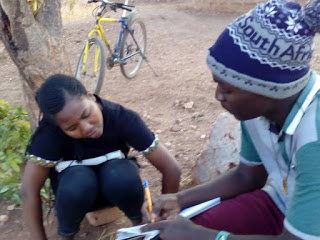
Cararise works with an Our Moon student.
Because of the tuitions, we were able to gain confidence, especially in mathematics. The Hillcrest students told me that if we could muster up even more confidence, then we were halfway towards good grades, and they were right. The tuitions also made us work hard because of the results we were getting during the tests I used to write. The Our Moon program affected our results positively because we were given the experiences of full examination papers.
We owe our results to the Our Moon tuition program. The tuitions affected our results positively in that it polished up on the topics that we did not understand in school, which would have created a big challenge in the exam. Our results without the tuitions would have been good, except not as good as they are now. We feel like we went to the tuitions primarily to gain confidence in ourselves and get comfortable with our strengths. Therefore, we think that our results would have not been as good without them.
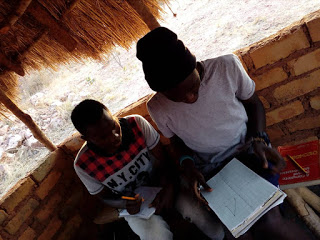
Vincent works alongside an Our Moon student.
KF and Our Moon Partnership:
We feel that the impact of this partnership is the exposure to a more challenging way to approach learning and is based on personal challenge. The Hillcrest and DK students are amazingly brilliant and KF pupils associating with them is putting great minds together.
The partnership between KF and Our Moon is very essential because it is exposing us to different places with different conditions which is making us stronger. Not only that, the peer tutoring is good because of the interactions with the tutors from different schools and different ideas about careers and many others.
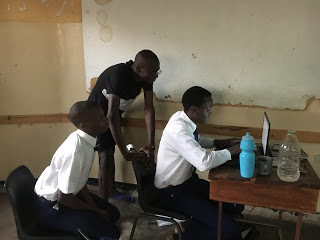
Vincent brings the things he learned in Chibombo back to Chalo Trust School
The partnership should continue. It will connect KF to more university opportunities and also enable students to be involved with other children with high goals. Also, like us, some KF students will experience personal challenge and be able to gain or re-gain morale in their examinations. This will teach KF students how to survive and thrive in different conditions. Furthermore, this will brighten their future because of the good results they will obtain through the help of Our Moon organization.
We think the partnership should continue because as it proved to be a great success on the 2018 Grade 12s. We are sure it will do even better for the upcoming students in helping to secure their futures with good grades.
It feels like yesterday when I began my journey of a thousand miles. Step by step, I’m finally here, but the journey is still going. Looking back, I see years and days invested. I see days invested in personal development and community development endeavors, such as community service and charity works.
I was first introduced to the idea of giving back to my community in 2013 when I was in Grade 8 after joining Kucetekela Foundation. As a young boy without exposure, I did not like the activity at all. This is because after coming back home from a boarding school, during the holidays, I felt like I was being deprived of the little precious time I had to spend with my family and friends at home. However, with time, as I began to see the impact I was making in my community and the benefits I was receiving from the activity, such as learning new skills and how to interact with people from different walks of life, my interest began to expand. Soon, it became one of my favorite activities, as it is even to date.
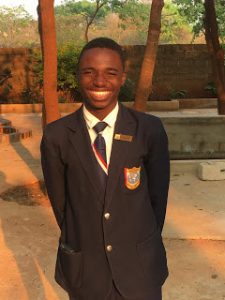
Kellyson as the Head Boy of Chalo
My first community service activity was done at Ng’ombe Community Clinic, the only health facility in Ng’ombe Compound. Here, I worked at the reception department where I was responsible for receiving and registering patients. I also worked in the pharmacy department and the storage room. At the pharmacy department, I was assisting the pharmacists by breaking the bulk of medicines and packing them into smaller sachets, making them ready to be handed to patients through the window. At the storage room, I was filing patients’ documents. The work was not very easy, but with perseverance and doing the job from a point of knowing that I was making a difference, I managed to cope with it.
After staying for a year without doing any community service activity due to my Grade 9 National Examinations, I resumed in 2015 when I was in Grade 10. This time around, I did not only work at Ng’ombe Clinic but at a larger institution called Centre for Infectious Disease Research in Zambia (CIDRZ) where I also did my work experience from as a health worker. At CIDRZ, I was mainly helping the nurses, laboratory personnel, and psychosocial counsellors with their various duties. I took patients’ vitals, such as blood pressure, temperature, height and weight. I was also filing documents as well as helping the laboratory personnel in carrying out blood tests, such as malaria and HIV/AIDS tests. At both institutions, I could see that with my assistance, patients were being attended to on time, hence the problem of long queues was minimized.
When I was in Grade 9, I, together with two other KF students, Lydia and Peter, decided to run our own community service project called The Voice of Impact. Our aim was to reduce the number of young people in Ng’ombe Compound who were indulging themselves in drug and alcohol abuse. We were also seeking to prevent young people from dropping out of school by keeping them busy with academic work and talent building during their termly holidays. In this regard, we tutored them in key academic subjects, such as mathematics and English and trained them in selected arts such as drama, poetry and singing. The students we recruited were fifty from three government schools in Ng’ombe. As a movement, we managed to record a 97% pass rate for those who were in exam classes (Grades 7 and 9). Those who made it proceeded to pursue their educations and building their talents further. Each time I meet some of these students, I am always excited knowing that I played a role in helping them become great in life.
Owing to this great impact I was making, community service became so very interesting that I was not only doing it during the holidays, but also during the days I was in school. At school, I joined a community service and environmental conservation club. As a committed and dedicated member, I took part in a tree-planting movement in which we planted many trees within the school grounds and outside the school in the surrounding communities. As time went by, one of the leaders decided to break away from the club and start her own club, taking the route of community outreach. She called her new club “Leaders of Tomorrow.” This club grew and became prominent. Upon seeing the impact, I decided to also join when I was in Grade 11. Soon, I was voted for as the new president of the club.
As the club’s new leader, I decided to expand it by broadening the outreach base. During my time, it became known as a community service and charity club. Taking advantage of my other leadership position as Head Boy, I organized fundraising ventures and outreaches to orphanages in collaboration with the school. At these orphanages, we made donations of assorted goods such as groceries, food and clothes. We also took time to visit the orphanage twice every week in which we played with the kids at the orphanages. In addition, as a way of fundraising and discouraging littering, I launched a recycling project in which we went around picking empty plastic bottles in the school’s surrounding communities to sell to the recycling companies. As we were picking the bottles, we also took time to talk to few people who shoed interest in what we were doing about the effects of littering on the environment and why everybody should be involved.
Within a short period of time, what we achieved as the club was amazing. In all we did, we strived to put a smile on an unhappy face, which we succeeded. We also succeeded in inculcating the value of a litter-free environment within the school and surrounding communities.
After completing high school in 2017, I was freer to carry out a lot of activities in the areas of my interests. I was able to give back to my community in volunteering, charity works, community service related activities, religious activities and entrepreneurial ventures. Three weeks after graduating from high school, I was privileged to be offered a job as an intern at one of the largest book stores in Zambia called BookWorld. This was a great opportunity for me as I had always wanted to work in a business environment. In the company, I was fortunate to work at the largest and busiest branch of the twelve branches, which was located in the oldest and largest shopping mall in the country called Manda Hill. My job as an intern was to ensure that sales were kept high through various selling techniques. I was also offering assistance to customers where necessary and I ensured that books were well organized and packed in the shop. My experience at BookWorld was great, because it made me grow into someone better. I have become more patient and understanding especially when dealing with people from all walks of life. I was exposed to the world of business in which I discovered that I can do well in business marketing.
After my three months contract with BookWorld was finished, I went to do a voluntary internship with USAP, a university access program for high achieving students from low-income backgrounds for two months. As an intern, my job was scanning the USAP 2018 applications and filing receipts for accounting purposes. I also attended recruitment meetings at schools with the country director. Seeing that I was a student under the organisation from the previous year, 2017, I was also a student representative on the USAP admission committee.
Working for USAP gave me a chance to know what happens behind the scenes of a successful organisation. I got to experience what admission officers experience at academic institutions such as making tough decisions during the selection process. Furthermore, I was made to understand what admissions officers usually look for in students.
Being passionate about knowing God more, I decided to do a Bible School Course called Basic Certificate Course. The course was quite intense, as I had to travel to and from school daily for two weeks and spent the whole day learning until we finished all twelve courses. We were intended to be finished in six months. The class was comprised of eighty students and I was the youngest both in age and experience. At the end of the course, I graduated as the best student with a distinction.
Upon completing Bible school, I volunteered to work for God at church. I was given a fellowship to run as an assistant call minister. Since then, I have been engaging in Evangelism and secretarial works at my local church congregation.
While doing many activities, I have been running two business initiatives. One is a business of selling building sand in my local community, while the other is offering tutoring services to those who are writing their Grade 12 and 9 exams this year. Through these small ventures, I have been earning a bit of money to help supplement some family needs.

Kellyson working on his applications
Finally, a description of my Gap Year experience would be incomplete without mentioning the process of applying to universities. I applied to many colleges abroad, mostly in the U.S., through USAP and KF. However, many of these colleges could not offer me admissions. Not being admitted did not stop me from continuing to apply to as many as were available. Finally, I was admitted to African Leadership University (ALU), the Harvard of Africa, after winning a Nelson Mandela Centennial Scholarship. This is a university I strongly feel is a best.
By Mutinta Mubita, KF Class of 2017
The year came to an end and I had just completed secondary school. The question of every school-leaver rang! “What next?”
With the help of KF, I was offered an internship at BookWorld and was later given a job as a cashier. This was a massive change, because with each passing day, I became a new person. The different types of people I worked with pushed me into changing my thinking and how I view things. From them, I learnt that you can’t make people think like you, but you can put everyone’s thoughts together and reach your goals as a team.
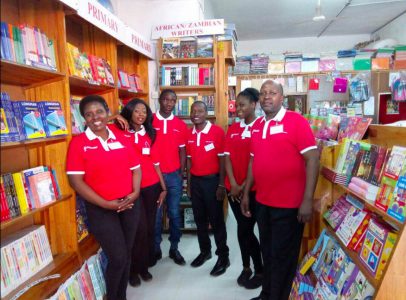
Martin, a KF graduate of 2017, with his team at BookWorld.
Meeting different customers with different personalities meant I always had to change my approach towards each and every person that walked into the shop. During this time, I met people like Pompi (the gospel artist), Former Bank of Zambia Governor, Mr. Fundanga, Honorable Peter N. Mangande, and the President of the Republic of Zambia, Mr. Edgar Chagwa Lungu.
Meeting the President was very exciting, and I couldn’t believe that I was seeing him in front of me. One thing I learnt from him was the culture of reading. He said, “The problem we have in Zambia is that people don’t read.” He bought all the Zambian writers’ books. This is what he always does when he passes by.
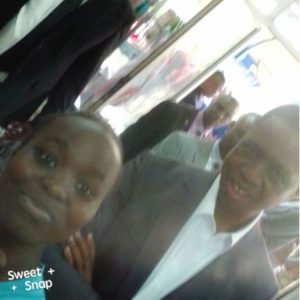
Mutinta takes a selfie with President Edgar Chagwa Lungu
After a long one year and two months of working, it is now time to go back to school and pursue my career. Being accepted into National Resources Development College (NRDC) to study Agricultural Engineering is one of the biggest achievements for any person interested in agriculture.
People ask me questions like, “Why agriculture?” My answer is simple: “Agriculture is the future.” Sometimes we don’t need to give long answers for us to be heard. All of this was made possible by KF. Thank you.
Gaella Kabeya grew up in Lusaka, Zambia and started school at the age of five. She was a high-achieving student from the beginning of her school. She won a Kucetekela Foundation scholarship and was the best student in the selection exams. While at Leopards Hill Secondary School, she was a powerful, outspoken student who motivated her peers to work hard as she was the top student in her class for which she won many academic and co-curricular activities awards. She was a leader of many school clubs such as debate, sports, science club and consequently was selected as Entertainment Prefect. She also participated in international programs such as The Global Service Summit, Model United Nations and Teen Vision Trust Leadership Conferences. Here are her thoughts:
My name is Gaella. I am a proud alumni of Kucetekela Foundation, Leopards Hill Secondary School in Lusaka, The African Leadership Academy and The University of Rochester, where I graduated (class of 2018) with a Bachelor of Science degree in Brain and Cognitive Sciences.
Over the years, my interests and passions have changed. However, at the moment, I’m interested in improving the customer experience for consumers in Lusaka through experiential marketing. Some of the challenges I run into every day in Lusaka with regards to consumer products and services are bad customer service and a lack of information about products and services. It is just plain hard to access information about any products and services before buying. I am still figuring out all the pieces that I need to effectively solve these problems but I’m well on my way there.
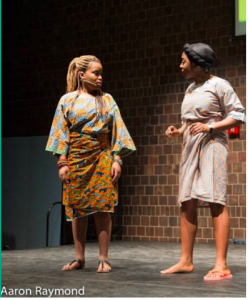
Gaella performing in a theatre production at Rochester.
I moved back to Zambia right after graduation because I wanted to be closer to my family and I’ve always had this deep rooted conviction that Zambia is where I will make it. I am just starting my journey to the big leagues, I hope I make it there sooner rather than later. Right now, is a time of mixed emotions for me, the most prominent are confusion and excitement; confusion because I’m still trying to figure out what is next for me moving forward and excitement because I have so much to choose from and learn every day. For now, I spend my days job hunting, going to the gym, reading, learning how to farm tomatoes and planning my future.
I believe it’s a wonderful time to alive because of the number of new opportunities that I see around me everyday. I feel very lucky to be a part of KF, to have been given many great opportunities to education and life at large. I am happy to be back n Zambia and I look forward to making meaningful social impact.
The transition from being a dependent person to one who has to entirely meet his own needs is tricky. This is so because as an adult or high school graduate, there are some needs that probably nobody else can provide for you apart from yourself. One such need is transportation to enable you to carry out your duties.
I am personally one of the luckiest persons to have been offered a job directly after high school, but the credit is not mine to take home. This is so because KF helped me get an internship with BookWorld Zambia. I was later given a contract as a full time employee. Since signing a contract, a lot has changed in my life in terms of different things, from how I spend or handle finances to communication skills on a personal level.
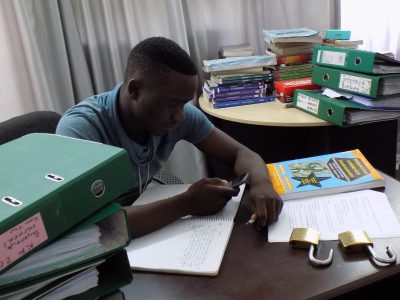
Martin drafts tertiary application essays at the KF office.
As an employee and Gap Year student, I have had to find a balance between work, university applications, and studies. That seemed difficult at first because work was tiring and extremely demanding, but I had to get my game back on. The travel to and from work was not just stressing but costly. At some point, I began to think I was working for transport.
To curb the problem of transport costs, I thought of buying a bike, as I knew I would spend so much on a bike, but once and for all. I didn’t just curb costs of travel, I also created a way for me to exercise and travel around town without delay.
I have used my bike to run around the city within time, as I time my pace and start off times. For example, when my mentor wanted to meet me, I used my bike to get to Kabulonga and still managed to attend my soccer practice at the Olympic Youth Development Centre (OYDC), on the opposite side of town.
Riding around Lusaka is somewhat a funny thing but worth trying. You have no traffic on a bike and no daily costs of forty kwacha for a one-direction trip. I have used my bike to even get to Pestalozzi, my former secondary school, twice for a tournament the school invited me for. The only sad thing is that I didn’t take part in it, because I was known by one of the officials of the tournament, as he faced me at one point.
If you want to do something big in life one day, start simple. Having a bike has enabled me to use that extra money for transport on some of my own long-term projects. At times, you may just come across some guy and you start cycling each other, which makes me even ten to twenty minutes earlier for work or my destination. I am careful, though, when I ride. I always wear a helmet to protect myself from head injuries.
The only problem I had at first was how people view owning a bicycle, but I am a kind of person who works to get to my goals, so I ignore people’s thoughts. The night rides are fun too; they make me happy.
Get In Touch:
We welcome your inquires and questions.
For general inquiries, please email us at info@kucetekelafoundation.org
Donate:
Your donations make a real difference. Learn more about how to donate to Kucetekela Foundation.

